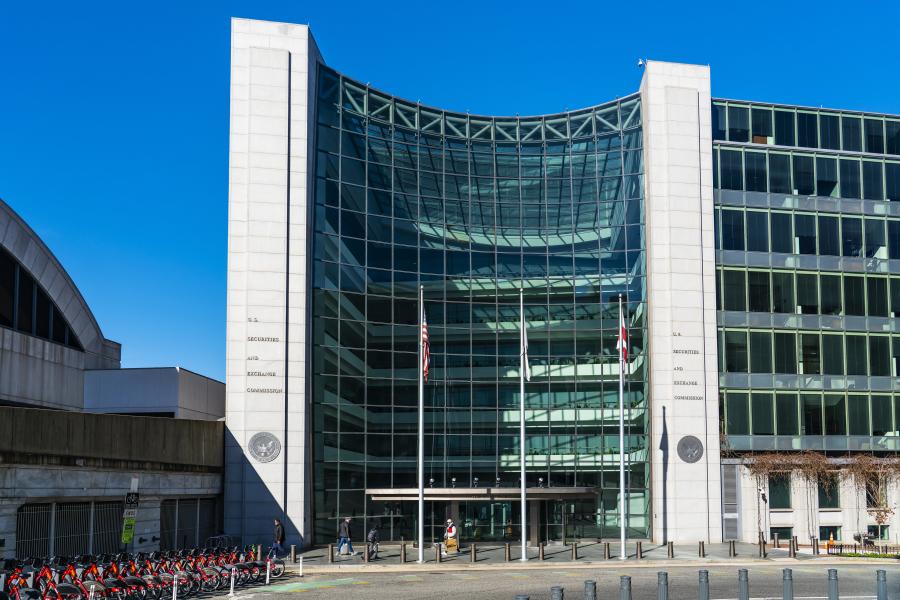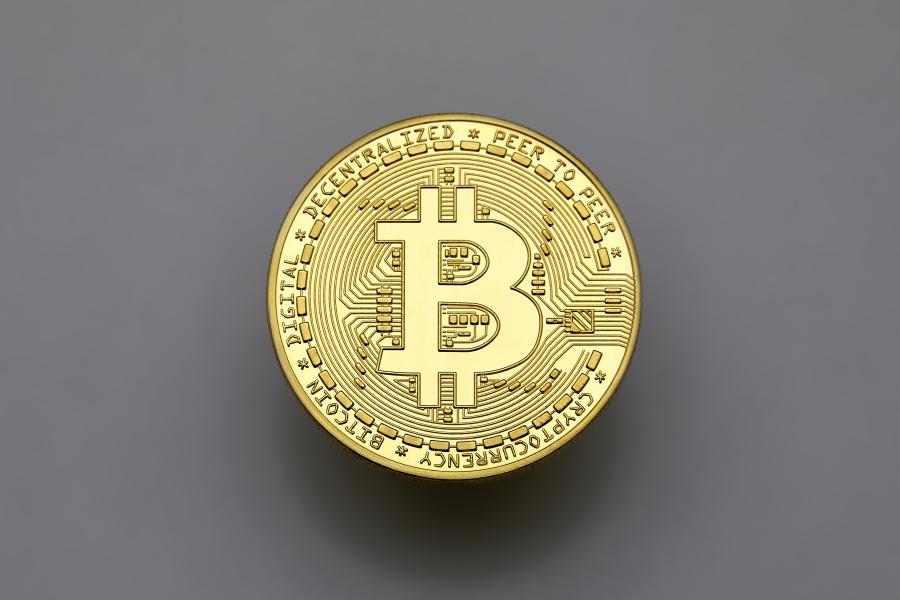Are regulators trying to make up for it by cracking down?
This week, our blockchain experts assessed the following topics:
- Are regulators trying to make up for it by cracking down?
- Is the SEC’s Staking Attack good or bad for the industry?
- Scaling public blockchains is getting real with zkEVMs
- Crypto-friendly Hong Kong: China’s subtle way of establishing a crypto mecca for themselves?
Our bi-weekly Crypto Industry Report provides you with valuable information on the global crypto industry – picked and analysed by our blockchain experts.
Are regulators trying to make up for it by cracking down?
Following the infamous events of 2022, US regulators are turning up the heat on crypto services and products in 2023. One of the services they have targeted recently is custodial crypto staking, a process whereby customers have a financial service provider lock up their coins with a blockchain protocol over a certain period of time in exchange for rewards. This comes as no surprise since the SEC’s chairman, Gary Gensler, previously said that crypto staking looks very similar to lending. US crypto exchanges that offer this service are, therefore, in the SEC’s line of fire.
And as it turned out, the first top crypto staking provider in the SEC’s crosshairs is Kraken. Earlier this month, the exchange was charged with offering and selling unregistered securities via the crypto asset staking-as-a-service program. Kraken agreed to close down its US staking service and pay $30 million to settle this charge.
Also this month, the SEC also charged Terraform Labs and its co-founder, Do Hyeong Kwon, for running a crypto asset securities fraud worth billions of dollars. Terraform Labs is the company behind the algorithmic stablecoin Terra, which collapsed last year. The SEC complaint says that Kwon and Terraform marketed crypto asset securities to investors that were keen on making a profit. The SEC also accuses the company and its co-founder of claiming that its tokens would grow in value.
“From April 2018 until the scheme’s collapse in May 2022, Terraform and Kwon raised billions of dollars from investors by offering and selling an inter-connected suite of crypto asset securities, many in unregistered transactions,” the SEC wrote in a statement.
In other stablecoin news, the New York State Department of Financial Services (NYSDFS) has asked crypto firm Paxos to stop issuing the Binance USD (BUSD) effective February 21. The NYSDFS issued this order “as a result of several unresolved issues related to Paxos’ oversight of its relationship with Binance.” Paxos is the company behind this Ethereum-based stablecoin in partnership with Binance. BUSD is also available on the BNB Chain as a wrapped token. However, the wrapped version isn’t issued by Paxos. It’s solely a Binance product.
As it stands, the SEC has notified Paxos of potential charges against it regarding BUSD. If these charges are made, the SEC could declare BUSD as a security. This move could also impact other stablecoin issuers in the US. Standing in firm defiance, Paxos has categorically said that it doesn’t believe BUSD is a security.
In reaction to the regulatory crackdown in the US, Binance may sever ties with US business partners, according to a source familiar with the issue. The source told Bloomberg that Binance is considering cutting ties with partner banks and service firms. The crypto company is also allegedly re-evaluating venture capital investments in the United States and may consider delisting tokens from US-based projects such as Circle’s USD Coin (USDC). However, CZ tweeted on February 17 saying that the details in the Bloomberg report were false. On the same day in a separate tweet, the Binance CEO also said that the company had “pulled back on some potential investments or bids on bankrupt companies in the US.”
Is the SEC’s Staking Attack good or bad for the industry?
Crypto Twitter has criticised the SEC’s recent actions, calling it regulation by enforcement. For instance, Kraken’s founder Jesse Powell tweeted that the SEC’s main goal is to shut everything down and that they’re not interested in supervising the crypto space. Powell also reckons that financial regulators let the “bad guys” become big to serve their agenda.
Kraken’s founder Jesse Powell is obviously unhappy about the SEC’s actions against crypto staking. But he’s not alone. Charles Hoskinson, Cardano’s creator, said the SEC’s approach to crypto staking is unclear. In his argument, he highlighted that Kraken’s structure of its staking service may have violated regulations, but that doesn’t mean the underlying assets are securities. Coinbase’s chief legal officer, Paul Grewal, also gave his two cents, saying staking remains a legal and necessary form of investment despite the SEC’s scrutiny since it contributes to the security of Proof-of-Stake (PoS) blockchains.
He has also asked the SEC to follow due process with its crypto custody proposal. The proposal seeks to expand custody rules to crypto assets. Furthermore, Custodia’s CEO Caitlin Long joined Jesse Powell in writing on Twitter that US regulators and law enforcement ignored their warnings of illegal activities and fraud in the sector, yet they are now paying the price for other people’s mistakes. Custodia, a Wyoming-based crypto bank, was denied Federal Reserve System membership in January.
And yes, the regulator has even been receiving criticism from its own commissioner regarding its crypto custody proposal. According to Commissioner Hester Peirce, the proposal is possibly problematic due to the workability, the agency’s jurisdiction, and timing. She also said that the public needed more time to evaluate and discuss it.
Conversely, some people feel that the SEC isn’t attacking crypto staking, but how platforms handle staking programs. In their opinion, the SEC recognises the importance of staking in achieving consensus for PoS blockchains. Moreover, some digital asset enthusiasts even believe that the crackdown on custodial platforms that offer staking services will push retail investors and institutions to non-custodial staking, thereby promoting decentralisation.
Scaling public blockchains is getting real with zkEVMs
Polygon, an Ethereum layer-2 (L2) scaling solution, has announced that it will roll out its zero-knowledge Ethereum Virtual Machine (zkEVM) mainnet beta on March 27. Polygon’s zkEVM will be the first zero-knowledge scaling solution that’s fully compatible with Ethereum. It will offer cheaper and faster transactions and will work seamlessly with all Ethereum tooling. This means that developers can build on Polygon zkEVM without having to change Ethereum code.
EVM is a computer that powers decentralised applications (DApps) on Ethereum, while zkEVM is a virtual machine that supports zero-knowledge computation. Zero-knowledge (ZK) rollups are used as a scaling solution because they move state storage and computation off-chain, reducing the amount of data posted to the main chain. This minimises network congestion and lowers transaction costs. By combining EVM with ZK rollups, developers can execute Ethereum smart contracts on Polygon zkEVM with ease.
ZK rollups batch transactions together off-chain and provide zero-knowledge proofs to settle the transaction on Ethereum. Zero-knowledge proofs state that transactions are valid without providing extra details, hence the name “zero-knowledge.” When ZK rollup functionality is embedded in an EVM, the layer 2 protocol can deem proofs as valid at a faster rate, saving time and money. ZK rollups bundle transactions together and generate proofs through the upgraded virtual machine.
What sounds rather technical, is just about now turning out to be the next big scaling approach for public blockchains. Thus, the race to deploy zkEVMs is already intensifying. Other projects like Scroll, Matter Labs, Taiko, and ConsenSys are also building zkEVMs. Currently, no project has launched a completely permissionless and open mainnet.
Crypto-friendly Hong Kong: China’s subtle way of establishing a crypto mecca for themselves?
Since banning Bitcoin mining in the Summer of 2021, China has taken a stern stand against cryptocurrencies. Nevertheless, recent plans to make Hong Kong an Asian crypto hub indicate that this stand could be changing. Paul Chan, the financial secretary of Hong Kong, announced plans to turn the city into a crypto hub backed by a strong regulatory framework in January. This will help the city to regain its status as a financial centre. The news has resulted in positive price action across the crypto market despite the US regulatory crackdown on the space.
Hong Kong has developed a plan that will allow retail investors to trade BTC and ETH. Moreover, the city will enable individual investors to trade large cryptocurrencies on licensed exchanges. However, the Securities and Futures Commission (SFC) hasn’t revealed which large coins will be tradable. The new
licensing regime will be effected on June 1, and the SFC will receive public opinion until March 31.
Plans for the Hong Kong crypto hub are attracting institutions that would like to do business in this city. For instance, DBS, the largest bank in Singapore, wants to apply for a digital asset license, permitting it to provide crypto trading services. Additionally, Justin Sun has said he will move the Asia headquarters of crypto exchange Huobi to Hong Kong to support the city’s efforts.
Hong Kong is also planning to regulate stablecoins and may increase the number of licenses stablecoin issuers need to operate in the city. Currently, the Hong Kong Monetary Authority doesn’t allow algorithmic and arbitrage stablecoins.
What seems especially interesting about the situation: Hong Kong’s efforts to become a crypto hub are getting soft backing from Beijing. According to congress member Nick Chan, Hong Kong “is free to explore its own pursuit under One Country, Two Systems” as long as the move doesn’t threaten China’s financial stability.
Share post

Related Posts

To be continued: SEC pushes back at Coinbase
SEC pushes back against Coinbase's claim of no regulatory jurisdiction, stating the crypto exchange knowingly violated securities laws. Meanwhile, Gemini, owned by the Winklevoss twins, files a lawsuit against Digital Currency Group and CEO Barry Silbert alleging fraud and deception following the collapse of a lending venture. The Bank for International Settlements survey reveals that 93% of central banks are working on Central Bank Digital Currencies (CBDCs) which are seen as potential geopolitical policy tools and a challenge to the dollar's dominance. The race for a Bitcoin ETF intensifies, with BlackRock refiling its application featuring Coinbase as the market surveillance partner, as the Grayscale Bitcoin Trust's discount to net asset value narrows, potentially indicating the transformation into a proper ETF.

BlackRock fever: The ETF filing spree and institutional appetite
BlackRock filed for a Bitcoin ETF with the SEC, inspiring similar applications from firms like WisdomTree, Invesco, and Fidelity, and boosting Bitcoin's value. Traditional finance institutions such as Fidelity and Nasdaq are showing increased interest in crypto, with moves towards exchange and custody services. The defunct crypto exchange FTX, under new CEO John Ray III, is planning a potential revival after recovering significant assets. Meanwhile, the IMF is developing a global CBDC platform for cross-border transactions and DAI, a major stablecoin, is diversifying its backing from USDC to include real-world assets.

SWIFT explores blockchain interoperability
SWIFT has partnered with Chainlink to experiment with leveraging its infrastructure for transferring tokenized value across blockchain networks. The trials will address interoperability, regulatory challenges, and operational drawbacks for financial institutions in a blockchain environment. Chainlink will provide connectivity between private and public blockchains. SWIFT's findings will be published later this year.

China wants an Internet 3.0, while Hong Kong gears up for crypto trading launch
China is striving for advancement in Internet 3.0 technologies, with Beijing's white paper outlining plans to invest in the development of the metaverse and Web3 tech such as non-fungible tokens, but not cryptocurrencies due to the country's previous ban. Meanwhile, Hong Kong is launching its new crypto trading regulations, allowing retail investors to participate from June 1, 2023, with exchanges like Huobi Hong Kong beginning to offer spot trading to retail and institutional clients. Furthermore, the Cybersecurity and Technology Crime Bureau of the Hong Kong Police Force is launching a metaverse platform, 'CyberDefender', to educate the public about potential threats and crime prevention in the metaverse.

BRC-20: Innovating on Bitcoin is the new cool
A new Bitcoin “token standard” called BRC-20 is the hottest thing right now in the crypto space. It was introduced in March 2023 by a pseudonymous person called Domo. Bitcoin Request for Comment 20 (BRC-20) is an experiment that brings fungible tokens to the Bitcoin blockchain using the Ordinals protocol. Ordinals rely on ordinal theory, enabling the identification and tracking of individual satoshis within Bitcoin's existing supply, while also allowing them to be inscribed (associated) with data. Through this technique, satoshis (sats) are given ordinal numbers starting with zero. Anyone can add a script file to a sat to create and transfer a BRC-20 token on the Bitcoin blockchain. BRC-20 tokens are created using three functions: deploy, mint, and transfer.

US versus EU: Giants fighting for regulatory clarity
It is official now: The European Parliament voted overwhelmingly in favour of Markets in Crypto Assets (MiCA), legislation that will guide the crypto sector in all 27 European Union member states. 517 parliament members voted for it, while 38 voted against it. This approval makes Europe the first continent with comprehensive rules for cryptocurrencies. Also, it means that all EU member states will have unified crypto regulations. So, if a crypto business is approved in one EU member country, it could easily expand operations to another member state. The EU’s milestone was lauded by Binance as well as Kraken and Coinbase.

Ethereum: Another milestone reached with the Shanghai Update
On April 12, 2023, Ethereum successfully executed the planned Shanghai update also known as Shapella. The upgrade allows validators to unstake their staked ETH and withdraw their rewards, as well as staked ether if chosen. Now that another level of uncertainty has waned for the biggest smart contract blockchain, this new feature could attract more investors to stake their ether.

CFTC versus Binance:
Clash of the titans
The world’s leading crypto exchange by volume, Binance, alongside its CEO, Changpeng Zhao, and ex-Chief Compliance Officer, Samuel Lim, are being sued by the US Commodity Futures Trading Commission (CFTC).

Stablecoin USDC briefly lost its
peg. What do we learn from this?
One of the top stablecoins by market cap, USD Coin (USDC), de-pegged briefly from the US dollar on March 11 following the collapse of Silicon Valley Bank (SVB). Circle, the stablecoin’s issuer, held $3.3 billion in USDC reserves with the bank, which caused panic as investors rushed to withdraw their funds, assuming USDC could implode because of insufficient backing. However, the amount represented less than 8% of the stablecoin’s reserves.

Ethereum Shanghai upgrade pushed to April: Will there be too much selling pressure?
Ethereum stakers have been eagerly awaiting the Shanghai upgrade, which will enable them to withdraw their staked ether. Stakers’ funds have been locked since Ethereum introduced the proof-of-stake Beacon Chain in December 2020. The upgrade was originally slated to take place sometime in March but was pushed by about two weeks to April during a recent execution layer meeting.